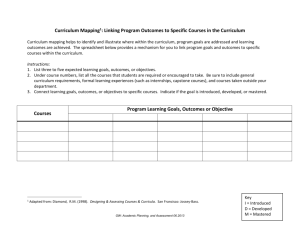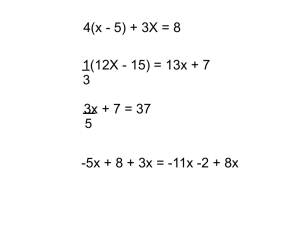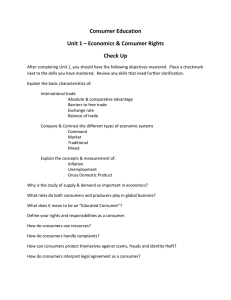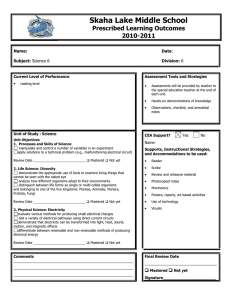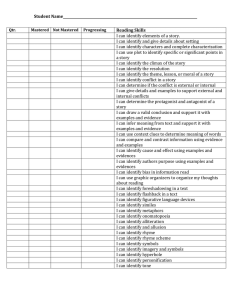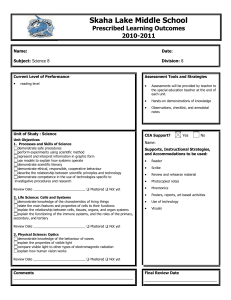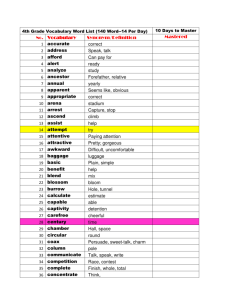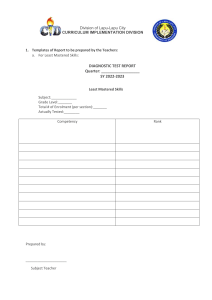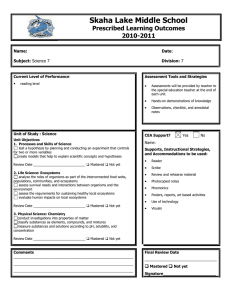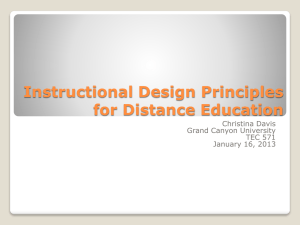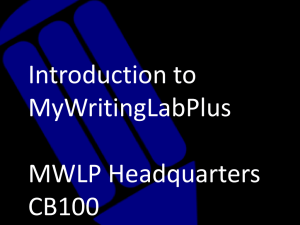Components of Effective Teaching
advertisement
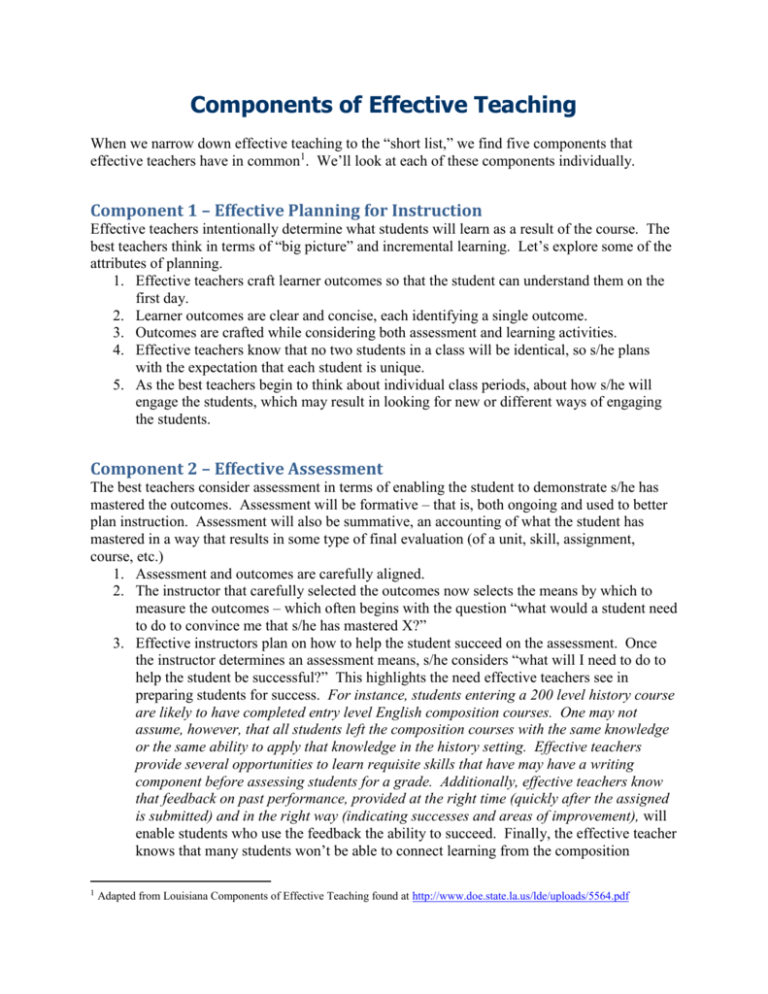
Components of Effective Teaching
When we narrow down effective teaching to the “short list,” we find five components that
effective teachers have in common1. We’ll look at each of these components individually.
Component 1 – Effective Planning for Instruction
Effective teachers intentionally determine what students will learn as a result of the course. The
best teachers think in terms of “big picture” and incremental learning. Let’s explore some of the
attributes of planning.
1. Effective teachers craft learner outcomes so that the student can understand them on the
first day.
2. Learner outcomes are clear and concise, each identifying a single outcome.
3. Outcomes are crafted while considering both assessment and learning activities.
4. Effective teachers know that no two students in a class will be identical, so s/he plans
with the expectation that each student is unique.
5. As the best teachers begin to think about individual class periods, about how s/he will
engage the students, which may result in looking for new or different ways of engaging
the students.
Component 2 – Effective Assessment
The best teachers consider assessment in terms of enabling the student to demonstrate s/he has
mastered the outcomes. Assessment will be formative – that is, both ongoing and used to better
plan instruction. Assessment will also be summative, an accounting of what the student has
mastered in a way that results in some type of final evaluation (of a unit, skill, assignment,
course, etc.)
1. Assessment and outcomes are carefully aligned.
2. The instructor that carefully selected the outcomes now selects the means by which to
measure the outcomes – which often begins with the question “what would a student need
to do to convince me that s/he has mastered X?”
3. Effective instructors plan on how to help the student succeed on the assessment. Once
the instructor determines an assessment means, s/he considers “what will I need to do to
help the student be successful?” This highlights the need effective teachers see in
preparing students for success. For instance, students entering a 200 level history course
are likely to have completed entry level English composition courses. One may not
assume, however, that all students left the composition courses with the same knowledge
or the same ability to apply that knowledge in the history setting. Effective teachers
provide several opportunities to learn requisite skills that have may have a writing
component before assessing students for a grade. Additionally, effective teachers know
that feedback on past performance, provided at the right time (quickly after the assigned
is submitted) and in the right way (indicating successes and areas of improvement), will
enable students who use the feedback the ability to succeed. Finally, the effective teacher
knows that many students won’t be able to connect learning from the composition
1
Adapted from Louisiana Components of Effective Teaching found at http://www.doe.state.la.us/lde/uploads/5564.pdf
courses to a new setting (history), so the best teachers enable those connections (in-class
demonstration/discussion; Jing video {short tutorial video available on the learning
management system}, handout, etc.).
Component 3 – Learning Activities
Effective teachers believe that what they do in class matters in terms of student learning.
Effective teachers also believe that learning activities should lead to lasting knowledge rather
than binge and purge testing procedures.
1. Effective teachers have a wide-array of instructional methods(e.g., lecture, activities,
problem-based learning, simulations, online content, etc.), intentionally selecting the
most appropriate instructional method based on the outcome and the type of assessment.
2. The best teachers spend a few minutes at the beginning of class to set-up the goal of the
day and end the class by asking what students
